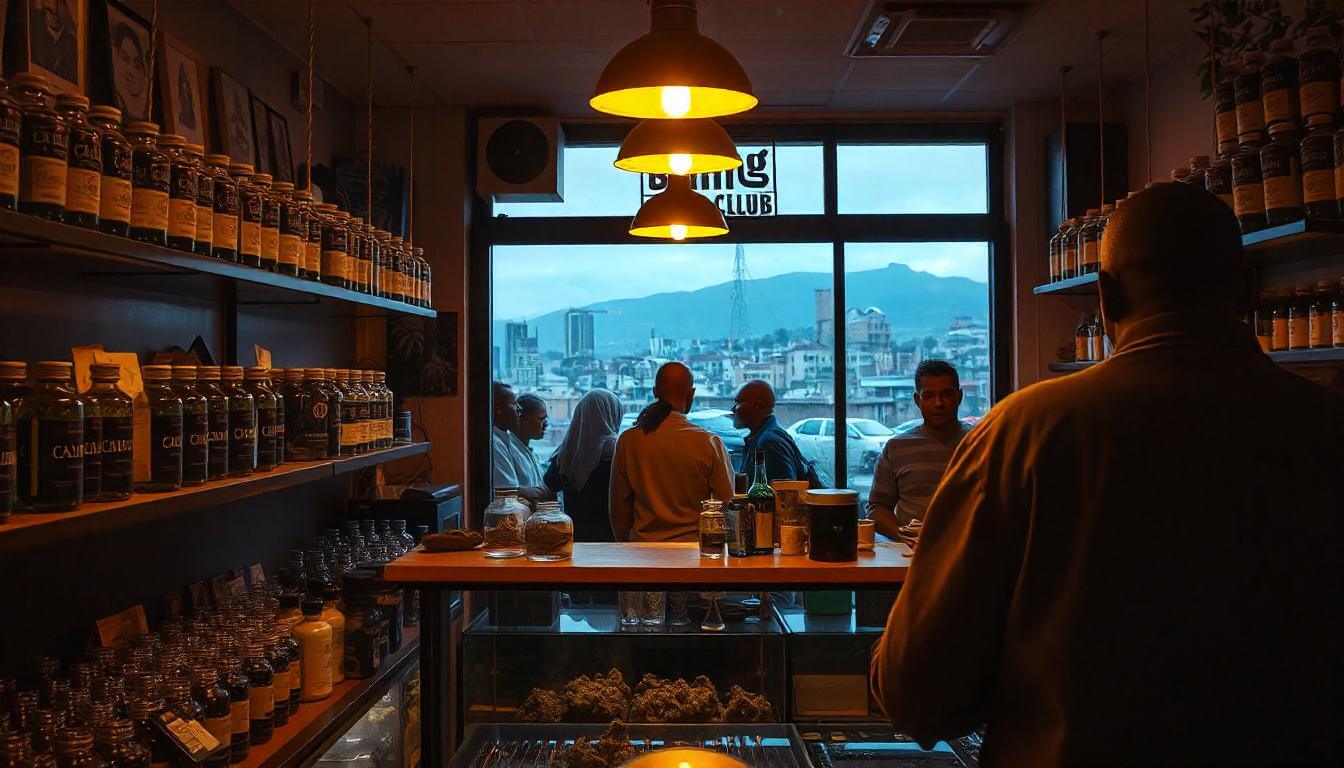In recent years, South Africa has witnessed a significant transformation in its cannabis market. The landscape is marked by the emergence of private cannabis clubs and medical dispensaries, reflecting the country’s shifting attitude towards this once strictly prohibited substance.
The rise of cannabis clubs
Since the landmark ruling by South Africa’s Constitutional Court that decriminalized private use and cultivation of cannabis, there has been a surge in the establishment of cannabis clubs. Notable examples like Infusion Social Club, Canna Busters, and Medcur Medical Cannabis have emerged in urban areas such as Cape Town and Johannesburg. These clubs are springing up regularly, signaling the rapid expansion of this sector.
Legal gray areas
Despite the proliferation of these establishments, the sale of cannabis remains technically illegal under the 1992 Drugs and Drug Trafficking Act. To navigate this legal gray zone, some clubs claim to operate within the boundaries of the law by renting out private land to their members and offering horticultural services. This method attempts to stay compliant with existing regulations on public drug activities.
However, this approach hasn’t been without conflict. For instance, in 2020, police raided the Haze Club in Cape Town. The club’s defense was ultimately dismissed by Judge Hayley Slingers, who argued that such a model could inadvertently result in the legalization of cannabis commerce without explicit legislation.
The role of medical dispensaries
Another dimension of the cannabis market in South Africa concerns medical dispensaries. These establishments often rely on Article 21 of the Medicines and Related Substances Act, which permits the sale of unregistered medicines under specific circumstances. This loophole has been used to justify the distribution of medical cannabis.
Debates and controversies
Paul-Michael Keichel, a lawyer specializing in cannabis-related legal issues, highlights that Article 21 was not intended for widespread commercial cannabis sales. Instead, it aimed to provide urgent access to necessary but unregistered medications for patients in dire need. He likened the exploitation of this legal gap to the contentious use of Ivermectin during the COVID-19 pandemic, suggesting that businesses might be misusing the provision to cater to the rising demand for cannabis products.
This ongoing debate underscores the complexities surrounding the regulation of medical cannabis and calls into question whether current legal interpretations align with the original intent of the law.
The call for regulatory clarity
The absence of clear legislation has frustrated many stakeholders in the cannabis sector, including club owners who believe that proper regulation is crucial for the industry’s success. Infusion Social Club, among others, advocates for a regulatory framework similar to that governing alcohol, including cultivation permits, on-site consumption licenses, and establishing a regulatory body responsible for enforcement throughout the supply chain.
Economic opportunities
Proponents argue that a well-regulated cannabis industry offers substantial economic benefits. Creating a clear legal structure could unleash this market’s full potential, fostering growth and innovation while ensuring compliance with safety standards. However, until such regulations are formalized, the sector remains in limbo, limiting its ability to flourish fully.
The future of cannabis in South Africa
The evolving cannabis landscape in South Africa reflects broader trends in other markets worldwide. Stakeholders remain hopeful that legislative reforms will soon catch up with social and commercial realities, providing a solid foundation for sustainable growth.
Regulatory global influences
Experts closely monitor international regulations and market developments, using this knowledge to inform local advocacy efforts. Understanding global best practices and adapting them to South Africa’s unique context could pave the way for a more robust and dynamic cannabis industry.
A comprehensive legislative overhaul would clarify the parameters for private and medical use and address essential aspects like youth protection and transparent licensing processes. Until then, the balancing act between current legal provisions and innovative business models will likely continue to shape the sector’s trajectory.





